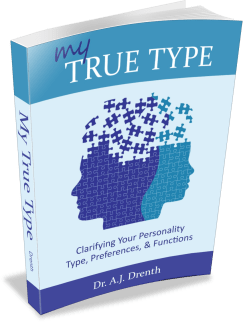
One of the primary dichotomies in the Jungian personality taxonomy is intuition (N) vs. sensing (S). It is sometimes cast as a preference for the “big picture” (N) vs. details (S), theory (N) vs. practice (S), or abstract (N) vs. concrete (S) matters. While each of these is relevant and appropriate in its own way, in this post, we will explore what I see as one of the more interesting ways of approaching this dichotomy, examining it in terms of experience (S) vs. reflection (N).
Sensing (S) as Experience
Technically speaking, experience is an ever-present feature of human life. Even when asleep, we are not without experience. For this reason, philosophers have argued that subjective experience, in this very broad sense, is the one thing (perhaps the only thing) whose reality we cannot doubt.
In everyday life, however, we tend to conceive of experience in a narrower sense, one involving concrete immersion in a particular place, role, or circumstance. We may, for instance, speak of world travelers as having lots of experiences or experts having extensive experience in their field. Meanwhile, our more mundane actions, such as grooming or watching television, are often omitted from our enumerated life experiences. It appears that some measure of novelty or specialness is required for something to qualify as a noteworthy experience. This is illustrated in our notion of “making memories,” where we intentionally aim to cultivate unique experiences that won’t be forgotten.
Of course, defining experience in terms of external circumstances—where we go or what we do—exhibits an extraverted (E) and sensing (S) bias. Any poet, philosopher, or mystic would admonish us that experience is as much an inner affair as an outer one. Nevertheless, the fact that experience typically connotes, at least in the United States, a concrete action or circumstance, makes it a worthy representative of the sensing preference.
Intuition (N) as Reflection
As a writer, I sometimes find myself contemplating the purpose of writing: What is it, exactly, that writers are doing? One answer I keep returning to is they are reflecting on, and abstractly coming to terms with, their experiences and observations. The writer’s life can thus be envisioned as consisting of two parallel but interconnected planes: that of experience (S) and that of reflection (N). The writer’s experiences furnish much of the raw material for reflection, while her thoughts, values, and ideals continuously shape and inform her experiences.
But what is it that inspires writers, artist, poets and the like to routinely reflect on their life experiences, not to mention life in general? The answer, of course, is their penchant for using intuition (N). What follows are examples of the sorts of things intuition might want to know about an experience:
- What caused or precipitated it?
- Why did I respond to the experience in the way I did?
- What does the experience suggest about how the world or other people operate?
- How does it cohere with or relate to my previous experiences / perspectives?
- What does it mean? Are there lessons to be learned? What implications does it have for me going forward?
Of course, unless one happens to be an academic philosopher, such concerns needn’t be addressed explicitly or systematically, but are usually handled more holistically. In addressing these sorts of questions, intuition can be viewed as looking beyond or underneath the concrete experience in order to understand what it means and how it interfaces with everything else.
In effect, intuition interprets experience in light of a much broader framework of understanding; the part (i.e., the singular experience) is seen through the lens of the whole (i.e., the totality of one’s understanding / experiences). For N types, it is not the concrete experience per se that is most interesting and valuable, but the intuitive response it inspires. This propensity can at times make it difficult for intuitives to connect with S types who are more attuned to the tangible aspects of everyday life.
Reconciling N & S
Some personality types, especially those with S and N in the middle of their function stack (i.e., IPs and EJs), may have an easier time establishing rapport between the concrete and abstract elements of life. They may have no clear sense of where sensing ends and intuition begins (or vice-versa). Thoreau’s life and reflections at Walden Pond, for instance, are suggestive of a rather seamless union of N and S. Others types (e.g., IJs and EPs) may experience a greater disparity or incommensurability in this respect, finding it harder to reconcile the N and S aspects of their lives.
Moreover, our personal growth process may at times inspire uprisings against our natural preferences. For instance, on several occasions the Austrian philosopher and N type, Ludwig Wittgenstein, professed his longing for a more “ordinary” (i.e., S) life. In like fashion, one can readily find S types relinquishing certain carnal pleasures in the name of moral / religious principles (N).
Of course, attempting to deprive any function—be it of an S, N, T, or F persuasion—is rarely a successful approach to integration, instead provoking a rebound response in the opposite direction. For example, in her post, How INFJs & INTJs Approach their Body & Physical Needs, Elaine Schallock discusses how INJs can ignore their bodily needs for long periods of time but may eventually swing to the opposite extreme in the form of excessive eating, over-strenuous exercise, etc. The truth is that no type is spared from this sort of tug-of-war between the dominant and inferior function, the only difference is which particular functions happen to be involved. Regardless of our type, we are all searching for balance and wholeness, for unification of our divided self.
Learn more about intuition and sensing in Personality Junkie’s best-selling book, My True Type: Clarifying Your Personality Type, Preferences & Functions.
